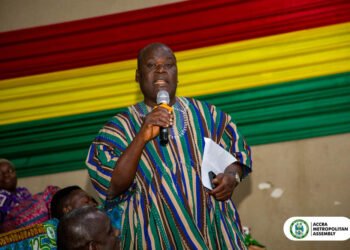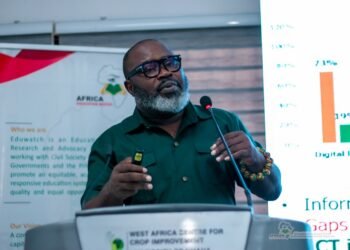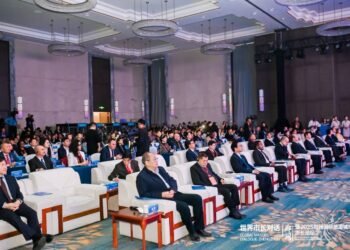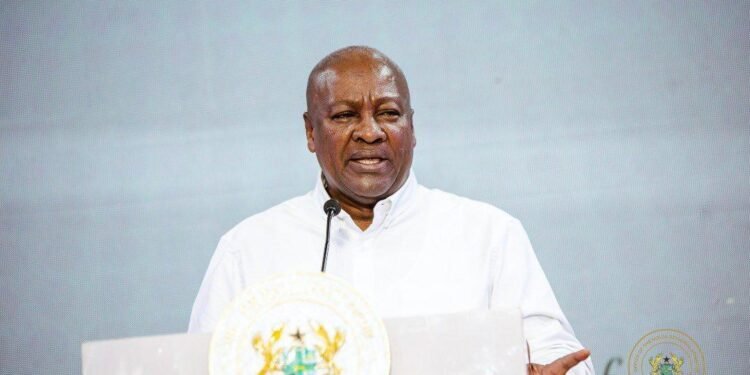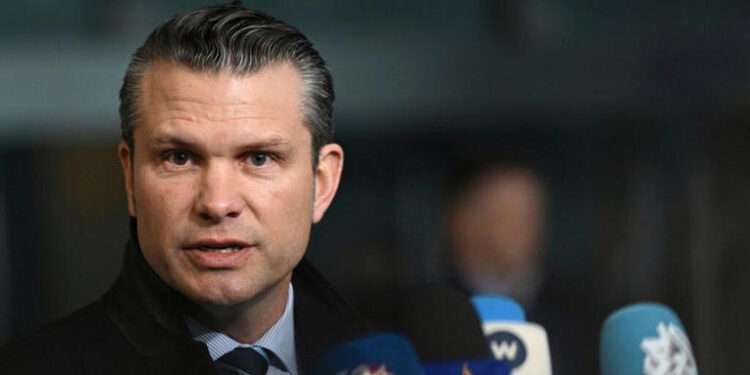The Ghana Chamber of Telecommunications has issued a press release expressing serious concern about the increasing frequency of fibre optic cable cuts across the nation, which are severely damaging the telecommunications infrastructure and affecting the quality of service delivered to customers.
According to the Chamber, the first half of 2024 saw a staggering 5,133 fibre cuts, costing the industry a total of GHS 118 million to repair. These funds, the Chamber lamented, could have been used to expand and enhance existing services, but instead, they had to be diverted toward repairing the damaged fibre networks.
“Although fibre is expected to be secure when buried underground, the experience in Ghana is quite different. There are frequent cuts and damages to fibre laid across the country.”
Ghana Chamber of Telecommunications
The Chamber revealed that these disruptions, in turn, affect millions of Ghanaians, interfering with basic communication, internet connectivity, and other essential services that depend on telecommunications networks.
The press release highlighted how these frequent fibre cuts lead to network congestion, poor call quality, slow internet speeds, and, in many cases, complete service outages.
“This situation is unacceptable,” the Chamber stated, adding that it undermines the significant investments telecom operators have made to deliver reliable, high-quality services to the Ghanaian public. Such disruptions not only frustrate customers but also hinder the country’s progress in digital transformation.
Fibre optic technology is a critical component in the telecommunications sector, forming the backbone of modern network systems. Fibre cables are either buried underground or strung above ground to connect to network operating systems, enabling fast data transfer and supporting high-bandwidth applications and services.
Due to its ability to offer real-time communication and seamless connectivity, fibre has become an indispensable part of the telecom industry worldwide.
The Ghana Chamber emphasized the superior reliability of fibre, noting that it is resistant to spatial interference and provides secure and clear data transmission, which makes it the preferred resource for maintaining high-quality telecommunications services.
However, despite its robust nature, the rising incidence of fibre cuts in Ghana is threatening the reliability and effectiveness of the country’s telecom infrastructure.
Efforts to Address the Issue
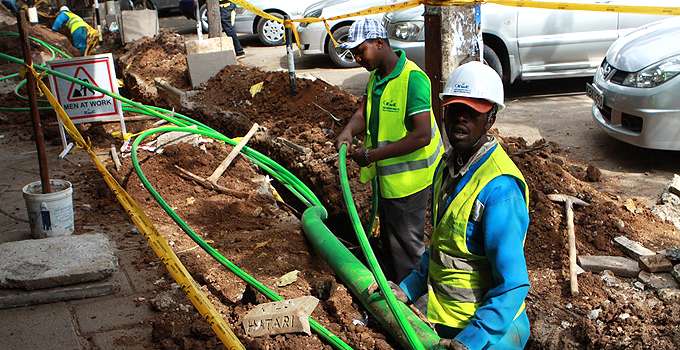
In response to these alarming developments, the Ghana Chamber of Telecommunications has taken proactive measures to tackle the problem. The Chamber is actively engaging with the Minister of Roads and Highways, road agencies, contractors, utility companies, and other stakeholders whose activities often result in fibre damage.
The Chamber also participates in the National Engineering Coordinating Team (NECT) meetings, where it advocates for stronger collaboration between telecom operators and construction or utility entities.
These efforts aim to protect telecom infrastructure from damage during roadworks and other excavation activities.
“Despite these efforts, some entities involved in these damaging activities have remained recalcitrant, repeatedly causing harm to critical telecom infrastructure.
“These actions have had a direct impact on service quality, leading to outages, slowdowns, and interruptions that frustrate our subscribers and hinder the country’s digital progress.”
Ghana Chamber of Telecommunications
Such recurring fibre cuts have become a significant challenge for telecom providers in maintaining consistent service quality. This, the Chamber explained, has prompted them to intensify their efforts to engage stakeholders and ensure better protection for their infrastructure.
As the frequency of fibre cuts continues to rise, the Ghana Chamber of Telecommunications is taking stronger steps to combat the issue.
In addition to ramping up its engagement with stakeholders, the Chamber called for greater support from the Police and Judiciary in prosecuting individuals and entities responsible for these damaging activities.
The Chamber proposed that its member companies consider taking legal action against uncooperative parties that consistently cause fibre damage. Such measures, they argue, are necessary to ensure accountability and protect the nation’s telecom infrastructure.
By holding these actors responsible under the law, the Chamber hopes to discourage future fibre cuts and safeguard the quality of telecom services in the country.
“Save Our Fibre” Campaign
As part of its broader strategy to address the issue, the Ghana Chamber of Telecommunications is launching a public awareness initiative titled the “Save Our Fibre” campaign.
This campaign aims to inform the public about the direct link between fibre cuts and the quality of telecom services.
“This is to reduce and hopefully eradicate the frequent cuts. This ‘Save Our Fibre’ campaign will be rolled out across social media platforms, where we will also update the public on the steps being taken to fix the damaged fibre.”
Ghana Chamber of Telecommunications
The Ghana Chamber of Telecommunications reaffirmed its commitment to delivering uninterrupted, high-quality telecom services to all Ghanaians. The Chamber pledged to continue working closely with all stakeholders to protect the nation’s telecom infrastructure and ensure that those who damage it are held accountable.
The growing number of fibre cuts across Ghana is a pressing issue that poses a significant threat to the nation’s telecommunications services. With mounting financial costs and increasing service disruptions, the Ghana Chamber of Telecommunications is calling for urgent action to protect the country’s telecom infrastructure.







